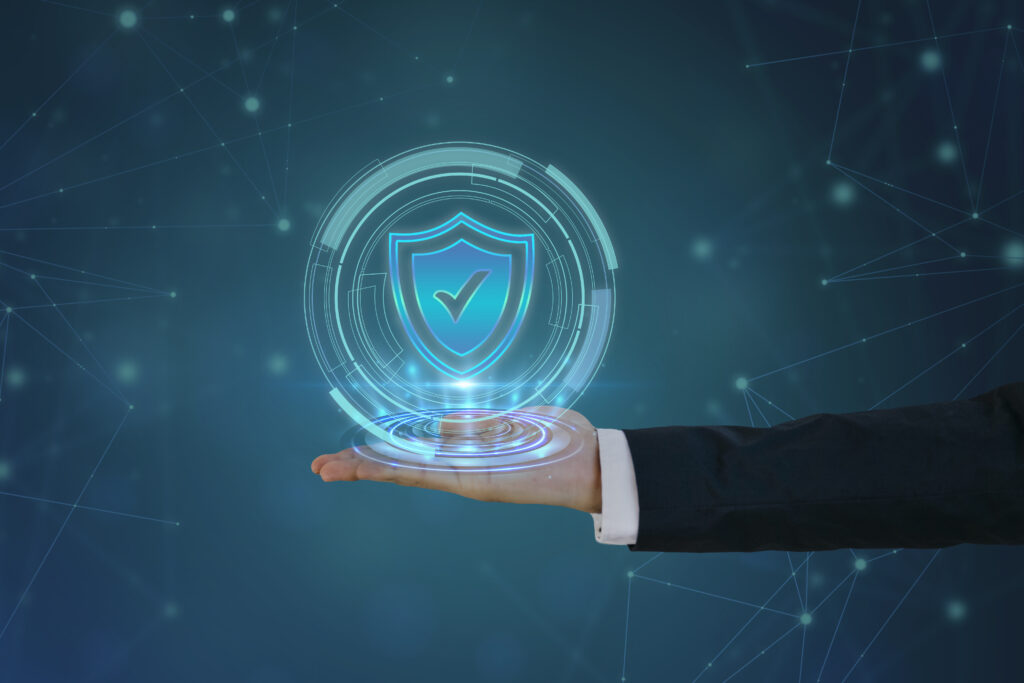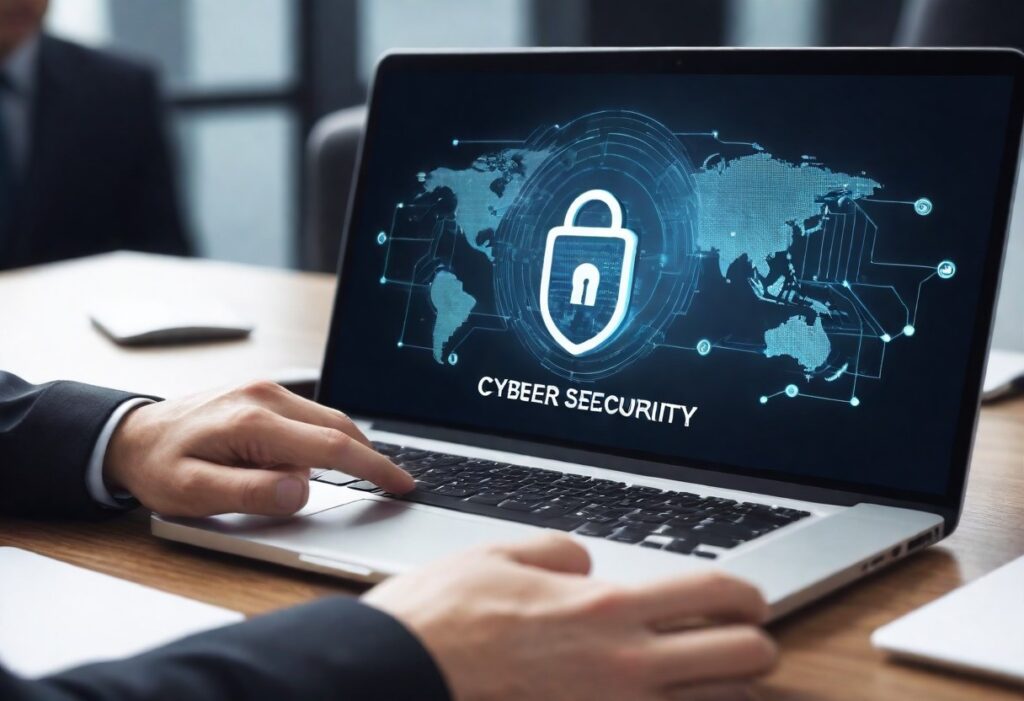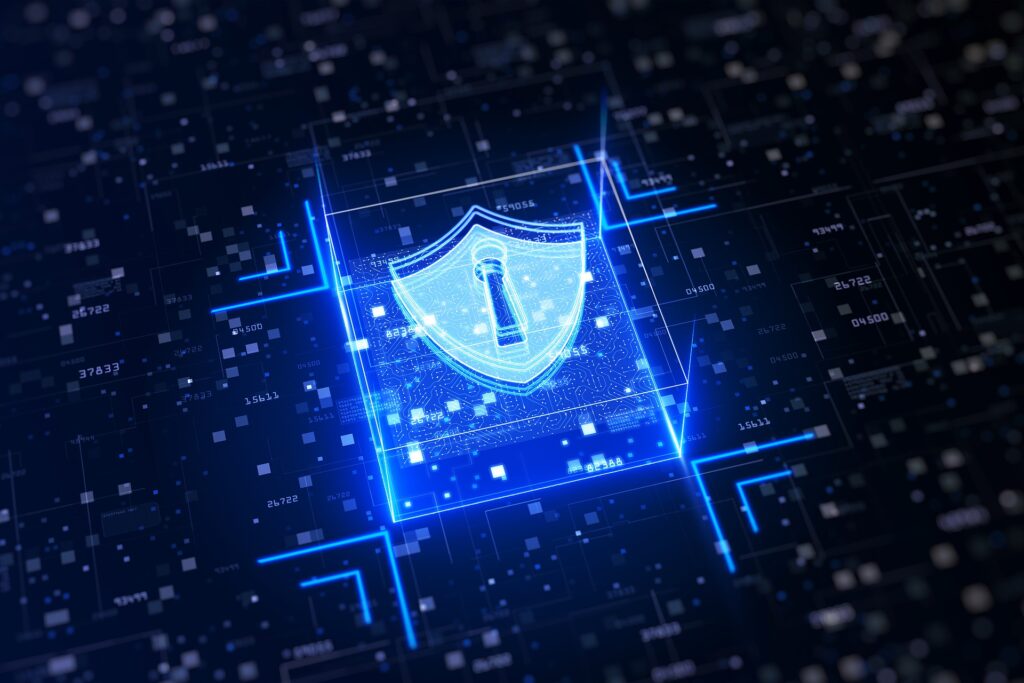
Imagine your business as a castle. Strong walls and gates keep it secure, but what about the secret passages hackers might use to sneak in? That’s where endpoint security comes in.
In our increasingly digital world, businesses rely on computers, phones, tablets, and even smart devices (called “endpoints”) to operate. With more devices connecting to networks than ever before, it’s crucial to secure these entry points. This blog post will explain why endpoint security is essential for keeping your business safe from cyberattacks.
Understanding Endpoint Security
Firewalls used to be the gatekeepers of our digital world, but times have changed. With more devices connecting to networks than ever before, cybercriminals are focusing their attacks on these individual endpoints, like laptops and smartphones. This is where endpoint security steps in.
What is Endpoint Security?
Endpoint security is like having a personal bodyguard for all your devices. It protects them from nasty threats like malware, ransomware, and phishing attacks, as well as unauthorized access. Traditional security measures just can’t keep up with today’s ever-evolving threats.
Why is Endpoint Security Important?
Endpoint security solutions are like super-powered security guards. They can not only defend against these threats, but also detect suspicious activity and respond to attacks in real-time. This helps minimize the risk of data breaches, financial losses, and damage to your company’s reputation.
The Evolving Threat Landscape
The digital world is like a bustling city – constantly growing and changing. But just like any city, it can attract some unsavory characters – cybercriminals. These criminals are getting smarter and more cunning in their attacks, and they’re often targeting endpoint devices, like laptops and phones, because they can be the weakest link in a company’s security.
Why Endpoints Are Vulnerable
There are a few reasons why endpoint devices are attractive targets:
- Remote Work: More and more people are working remotely, which means they might be connecting to company networks from unsecured Wi-Fi cafes.
- Personal Devices: Sometimes employees use their own phones or laptops for work. These devices might not have the same level of security as company-issued ones.
- IoT Devices: Many companies are using Internet of Things (IoT) devices, but these devices often have weak security features.
- RaaS and Fileless Malware: New attack methods like Ransomware-as-a-Service (RaaS) and fileless malware are making it even harder to stay safe.
Key Components of Endpoint Security:
Imagine a toolbox stocked with the perfect tools to keep your house safe. Endpoint security is like that toolbox, but for your devices. It equips you with a variety of technologies and strategies to combat cyber threats. Let’s explore some key components of endpoint security:
-
Antivirus and Anti-Malware:
These are your digital bodyguards, constantly scanning for and eliminating malicious software like malware and ransomware. They use a combination of tactics to identify both known and unknown threats. Recommended antivirus Software are Avast , Mcafee and Kaspersky -
Firewalls:
Think of firewalls as security guards at the entrance to your network. They monitor incoming and outgoing traffic, blocking anything suspicious before it can reach your devices. -
Endpoint Detection and Response (EDR):
EDR is your advanced threat hunting team. It continuously monitors your devices for unusual activity, allowing you to identify and respond to attacks quickly. -
Patch Management:
Just like patching a hole in your wall, keeping software up-to-date with security patches is crucial. Patch management automates this process, ensuring your devices stay protected against vulnerabilities. -
Endpoint Encryption:
Imagine a locked safe for your data. Endpoint encryption scrambles sensitive information on your devices, keeping it safe even if the device is lost or stolen. -
Mobile Device Management (MDM):
With so many smartphones and tablets in use, MDM is essential. It lets you enforce security policies, remotely wipe compromised devices, and control access to company data.
By having these tools in your endpoint security arsenal, you can significantly strengthen your defenses and keep your business safe from cyberattacks.
Benefits of Endpoint Security:
Investing in endpoint security offers numerous benefits for businesses, including:
- Protection Against Cyber Threats: Endpoint security helps protect businesses against a wide range of cyber threats, including malware, ransomware, phishing attacks, and zero-day exploits. By securing endpoints, organizations can minimize the risk of data breaches, financial losses, and reputational damage.
- Improved Compliance: Many regulatory frameworks and industry standards require organizations to implement adequate security measures to protect sensitive data and ensure compliance. Endpoint security solutions help businesses meet regulatory requirements and maintain compliance with relevant data protection laws and regulations.
- Enhanced Productivity: By minimizing the impact of security incidents and reducing the risk of downtime caused by cyber attacks, endpoint security solutions enable employees to work more efficiently and productively. With robust security measures in place, employees can focus on their core tasks without worrying about the security of their endpoint devices.
- Protecting Remote Workers: With the rise of remote work, ensuring the security of endpoint devices used outside the corporate network has become increasingly important. Endpoint security solutions provide remote workers with the same level of protection as in-office employees, regardless of their location or device.
Best Practices for Endpoint Security:
To maximize the effectiveness of endpoint security measures, businesses should adhere to the following best practices:
- Implement a Layered Security Approach:
Adopting a layered security approach that combines multiple security technologies and strategies is essential for comprehensive endpoint protection. By layering antivirus software, firewalls, EDR solutions, and other security measures, businesses can create a multi-faceted defense against cyber threats. - Educate Employees:
Employee education and awareness are critical components of effective endpoint security. Businesses should provide regular security training to employees, teaching them how to recognize and respond to security threats, avoid phishing scams, and follow security best practices when using endpoint devices. - Enforce Strong Password Policies:
Weak or default passwords are a common security vulnerability that cybercriminals often exploit to gain unauthorized access to endpoint devices. Businesses should enforce strong password policies, requiring employees to use complex, unique passwords for their accounts and encouraging the use of password managers to securely store and manage passwords. - Monitor and Analyze Endpoint Activity:
Proactively monitoring endpoint activity and analyzing security logs for signs of suspicious behavior are essential for detecting and responding to security incidents in real-time. Businesses should deploy endpoint detection and response (EDR) solutions that provide visibility into endpoint activity, allowing security teams to identify and mitigate threats before they escalate. - Regularly Update and Patch Endpoint Devices:
Keeping endpoint devices up-to-date with the latest security patches and software updates is critical for minimizing vulnerabilities and reducing the risk of exploitation by cybercriminals. Businesses should implement patch management solutions that automate the process of identifying, prioritizing, and deploying patches across endpoint devices to ensure timely protection against known vulnerabilities.
Conclusion:
In today’s digital world, cyberattacks target individual devices more than ever. Endpoint security is the essential final wall protecting your business from data breaches, operational disruptions, and reputational damage. Invest in endpoint security to safeguard your sensitive data, ensure business continuity, and thrive in a constantly connected world.




